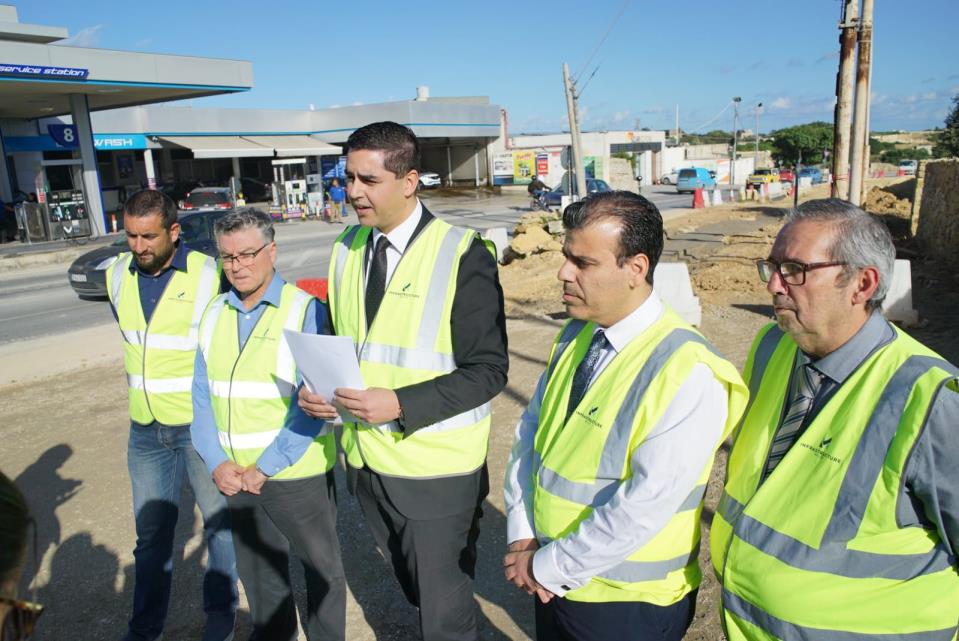The widening on the Tal-Balal may be delayed into next year, with inclement weather and traffic circumstances being a contributing factor to this delay, the CEO of Infrastructure Malta Frederick Azzopardi said in an on-site visit on Wednesday.
The project has drawn controversy since construction started, after it emerged that works had begun without a permit. This was justified by Transport Minister Ian Borg at the on-site visit, saying that Infrastructure Malta did not need a permit as initially the planned works where not going to take up more than the already existing footprint of the area.
It was only after the project had started that Infrastructure Malta had decided that an extra lane was required, and the necessary permits were applied for. The extra lane, Azzopardi and Borg said, was part of future plans for the area anyway.
The permits for the fourth lane were granted by the Planning Authority last week.

New road will result in 30-40% reduction in journey time; will have shared cycle lanes, new pavements and LED lighting
The €4 million project will reduce journey times by 30 to 40% on a road which sees approximately 2,100 cars pass through it per hour, Borg said.
A number of infrastructural improvements will also be part of the project; pavements for pedestrians will be built into the newly widened roads, whilst cyclists will be able to use shared cycle lines and bus stops will also be set up in a safer place, Borg said.

He said that the government wants to improve infrastructure for cyclists as much as possible, but added that cyclists must understand that dedicated, segregated cycle lanes are not possible everywhere.
Two kilometres of traditional rubble walls will also be bordering the road, whilst a centre strip with the necessary crash barriers will be another safety feature, Borg continued. The Transport minister also announced that 4.2 kilometres of electricity cables will be updated with increased voltage capacity and transferred underground, meaning that electricity poles around the road will now be removed, whilst the water mains system will also be changed and modernised.
Asked by this newsroom about the argument that road widening projects such as these could encourage more car use as opposed to pushing people towards alternative means of transport, Borg said that there was the need to keep working on public transport and other means, but added that until a mass transport system is in place, whoever still uses private vehicles for transport has to be catered for anyway.
He noted that the numbers using public transport had increased across the board; the numbers using public transport went up from 33 million to 50 million in the past five years, whilst ferry systems from 66,000 passengers in 2012 were now carrying 1.3 million passengers in a year. He also pointed out various initiatives surrounding electric bicycles and electric cars.